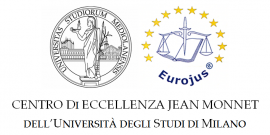Next Generation EU: has the Hamiltonian moment come for Europe?
Abstract (English)
The article will study the project of “Next Generation EU” (NGEU), and its significance for the process of European integration. The analysis will first consider the reasons that led Member States to establish the recovery fund. Then it will clarify the main features of the project and its most important innovations, in particular the creation of European debt, the establishment of a transfer mechanism, the shaping of a common macro-economic policy and the impact of these reforms on the institutional balance of the Union. The article will also consider how NGEU challenges some of the principles outlined by the Court of Karlsruhe to regulate the process of economic integration in the EU from the point of view of German constitutional law. In the light of the previous analysis, the article will reflect whether the establishment of NGEU fulfils the necessary conditions to represent a genuine “Hamiltonian moment” for the European Union.
To read the full article, click here.
Abstract (Italiano)
L’articolo intende studiare Next Generation EU ed il suo significato per il processo di integrazione europea. L’analisi si concentrerà innanzitutto sulle ragioni che hanno spinto gli Stati membri a creare il recovery fund. Si procederà dunque a chiarire quali siano le principali caratteristiche del progetto e le sue innovazioni più importanti, in particolare la creazione di debito europeo, l’introduzione di un meccanismo di trasferimento, l’avvio di una politica macro-economica comune e l’impatto di queste riforme sul quadro istituzionale dell’Unione. L’analisi considererà anche in che modo Next Generation EU mette in discussione alcuni principi sviluppati dalla Corte di Karlsruhe per disciplinare il processo di integrazione economica nell’Unione dal punto di vista dal diritto costituzionale tedesco. Alla luce di questa analisi, l’articolo cercherà di comprendere se la creazione di Next Generation EU rappresenta un vero “momento hamiltoniano” per l’Unione europea.


